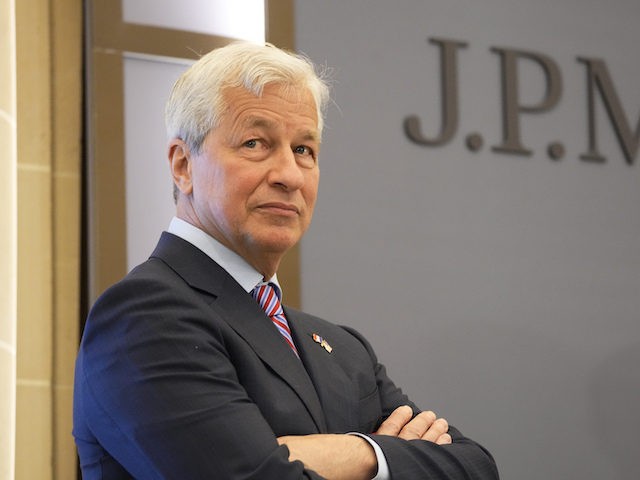
J.P. Morgan Chase chief Jamie Dimon issued an apology to China’s Communist Party Wednesday.
“I regret and should not have made that comment,” Dimon said in a statement issued by the bank Wednesday morning. “I was trying to emphasize the strength and longevity of our company.”
J.P. Morgan Chase is the largest U.S. bank by assets, with over $3.6 trillion. Dimon is one of the longest-serving chief executives on Wall Street and the longest-serving chief o America’s largest banks. He is often outspoken about economics and politics but crossing China’s Communist Party was apparently a step too far.
The apology follows remarks Dimon made the night before at the Boston College Chief Executives Club. Dimon had been talking about his bank’s attempts to expand its business footprint in China.
“We hope to be there for a long time,” Dimon said-. “The Communist Party is celebrating its 100th year. So is JPMorgan. And I’ll make you a bet we last longer.”
This prompted backlash from Chinese Communist Party officials. Overnight the bank’s government relations team huddled with its China team to do damage repair.
There was fear inside the companies that Dimon’s remarks could cause trouble for the bank’s efforts to expand in China. Earlier this year, JPMorgan won approval to fully own its China securities business, a rare license in a country where foreign companies are typically required to partner with domestic, state-linked firms.
Asked for comment at a regular press briefing on Wednesday, Chinese Foreign Ministry Spokesman Zhao Lijian accused Dimon of seeking attention at the expense of China.
“Is it really necessary to cite such remarks that are merely to attract people’s attention?” Zhao said.
Hu Xijin, editor-in-chief of the Communist Party’s Global Times newspaper, posted on his extremely popular Weibo account: “I bet the Chinese Communist Party will outlast the United States of America.”
Hu is not expected to apologize for that remark.
A lecturer at Fudan University with more than one million followers appeared to highlight the notion that Dimon’s remarks could threaten its license to operate independently: “Looks like JPMorgan doesn’t want its newly acquired license.” He also said that Dimon was “quite arrogant.”
China’s enormous population and relatively underdeveloped financial sector have long proved an irresistible attraction to U.S. banks and financial services companies. Often, however, attempts to expand into China have ended in retreat for U.S. firms when state-linked Chinese companies step into a sector or muscle out U.S. partners, often using techniques and know-how learned from the U.S. companies. Quite regularly, Chinese firms displacing U.S. firms are staffed by employees who formerly worked for U.S. companies.


No comments:
Post a Comment